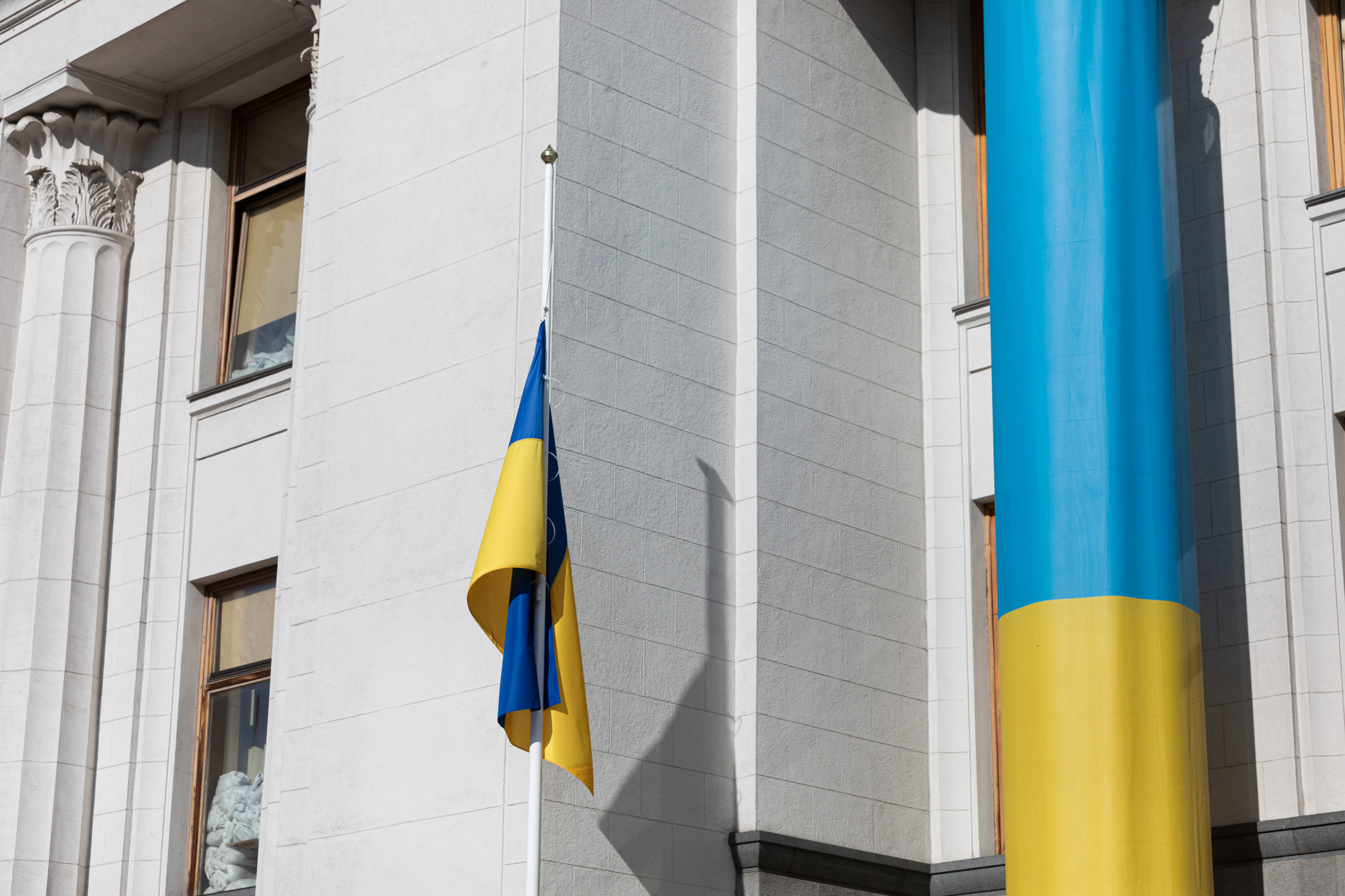Failure to prosecute either the USSR as a state or its top officials or even ordinary soldiers for committing international crimes remains a serious problem today regarding transitional justice and the rule of law.
Civil society’s overall passivity, lack of demand for justice, and unwillingness to rethink the role of the nation’s leaders, government agencies, parties, etc., were characteristic of some post-communist regimes at the dawn of democracy. This was particularly noticeable during the undeclared “war” between supporters and opponents of demolishing monuments to Soviet leaders and heroes.
In 2017, even Putin accepted the evidence of international crimes committed by the USSR, including the Stalinist regime.
“Who are the judges?”
Back in September 1939, Nazi Germany set up the Wehrmacht Bureau on War Crimes to document, investigate, and prosecute senior Soviet and military officials (notably, the USSR was not a party to the IHL’s founding treaties, including the Hague Conventions). However, a significant shortcoming of any armed conflict is the lack of legitimacy of judicial tribunals, which inevitably become either a trial for those who lost or a victim’s revenge. Thus, despite the USSR committing international crimes during World War II, there was no global, hybrid, or national tribunal over the perpetrators. That can be explained mainly by the “internal arrangements” of the Allies because the two US nuclear strikes and the bombing of Dresden by the Great Britain and the United States, resulting in an estimated loss of 25,000 to 25,000 civilians (according to various estimates,) were not prosecuted after World War II.
After lowering the Iron Curtain (1946), implementing the Truman Doctrine (the 1947 Containment Doctrine), and developing and testing Soviet nuclear weapons (1949), the international community reached a kind of consensus – namely not to mention the Allies’ crimes in World War II and to consider human rights violations (including large-scale and systematic cases) as countries’ “internal affairs.” During this period, all initiatives from the mid-1930s to develop a Code of crimes against the peace and security of mankind and establish a permanent international tribunal to prosecute international crimes were frozen. The response of the democracies to mass human rights violations took the form of economic and trade countermeasures (sanctions). For instance, in response to restrictions on the right to freedom of movement in the USSR, the US Congress adopted the Jackson-Vanik Amendment in 1974. This consensus accounts for why the first international criminal tribunals after World War II appeared only in the 1990s (for Yugoslavia and Rwanda).
Condemnation is possible – even after many years.
One of the main features of genocide, war crimes, and crimes against humanity is that they do not have a statute of limitations (Article 1 of the Convention on the Non-Applicability of Statutory Limitations to War Crimes and Crimes against Humanity, 1968). For instance, in 2009, Ukraine opened the so-called Holodomor criminal case over the genocide of officials in Ukraine in 1932-1933, which killed millions of Ukrainians. The list of the accused included Stalin, Molotov, Kaganovich, Postyshev, Kosior, Chubar, and Khatayevich. On January 13, 2010, the Kyiv City Court of Appeals upheld the prosecution’s findings. Then, it closed the criminal case under Part 1 (8) of Article 6 of the CPC of Ukraine (in connection with the deaths of the accused). The decision that apparently had important political rather than legal significance was praised by Göran Lindblad, Chairperson of the Political Affairs Committee of the Parliamentary Assembly of the Council of Europe, who called it “important for Ukraine and Ukrainians.” Meanwhile, representatives of russia’s State Duma called the decision “part of Yushchenko’s election campaign” and an attempt to artificially reinforce the Ukrainian issue.
Speaking of prosecuting the USSR for committing international crimes, it should be emphasized that all principles relating to non-application of statutes of limitations, the inevitability of legal liability, etc., apply both to those giving criminal orders at the highest level and the lowest level executors. That means some individuals may still be alive and must be justly punished for the crimes of the USSR. The Baltic States’ case law is illustrative in this regard, which became the subject of further decisions by the European Court of Human Rights in Kolk and Kislyiy v. Estonia (decision of January 17, 2006), Kononov v. Latvia (decision of May 17, 2010), and Vasiliauskas v. Lithuania (decision of October 2015).
The main problem of such proceedings is the nullum crimen sine lege principle (“no punishment without law”): the act must be criminalized by law before it was performed). However, the Nuremberg Trials drew the international community’s attention to the principles of natural justice. Law professor Gustav Radbruch of the University of Heidelberg elaborated them after he rejected the idea that horrific Holocaust-related and other international crimes could go unpunished simply because there were no laws criminalizing them. The illegality of such atrocities is blatant. The international legal community readily accepted the solution to the legal puzzle proposed by Radbruch and made it possible to prosecute international crimes within transitional justice frameworks.
ECHR adopted this approach. Thus, in Kolk and Kislyiy v. Estonia, the Court noted that deporting civilians was explicitly recognized as a crime against humanity in the 1945 Charter of the Nuremberg Tribunal. Although the Nuremberg Tribunal was set up to prosecute major European war criminals for crimes committed during World War II, the general validity of the principles of crimes against humanity was later reaffirmed by UN General Assembly Resolution 95 (1946). Article 7 (2) of the European Convention for the Protection of Human Rights and Fundamental Freedoms does not preclude the trial or punishment of any person for any act or omission that, at the time of committing, was criminal according to the general principles of law recognized by civilized nations. In addition, the Soviet Union was a party to the Nuremberg Charter of 1945 and a member of the United Nations when the General Assembly adopted Resolution 95. Therefore, it cannot be said that these principles were not known to Soviet authorities.
Russia must be convicted of genocide lasting more than 100 years.
Notably, in 1998, the Baltic States established a network of specialized transitional justice institutions to investigate crimes committed under the Nazi and Soviet occupation. These were the Estonian International Commission for Investigation of Crimes Against Humanity (EICICAH), established in 1998, the Commission of Historians in Latvia, and the International Commission for the Evaluation of the Crimes of the Nazi and Soviet Occupation Regimes in Lithuania. All three transitional judiciaries used the Rome Statute to legitimize their goal of re-evaluating historical narratives about World War II.
Ukraine can add its own experience to the examples set by the Baltic states (including by opening criminal proceedings, investigating facts, conducting proceedings, and finally closing the case solely in connection with the death of the accused). It is essential to “close the Gestalt” and shed light on the atrocities committed by the USSR against Ukrainians. We should also consider the russian federation’s international crimes in terms of aggression as an integral part of the ongoing genocide of the Ukrainian nation based on the findings of the “father of the Genocide Convention,” Raphael Lemkin. We must ensure that the victims of Soviet crimes and their relatives have the right to the truth. Transitional justice is an integral part of the nation-building process, which, unfortunately, Ukraine has ignored for 30 years.
A separate, interesting element is bringing a state responsible for wrongdoing at an international level to justice. Apparently, russia, as the successor to the USSR, received responsibilities along with the many rights, including compensation and satisfaction for victims of Soviet crimes. This is explicitly provided for in the agreement on legal succession concerning the USSR’s external public debt and assets (1991). Therefore, in theory, Ukraine still can file an interstate claim to russia for compensation, provided the crimes committed by the Soviet regime in Ukraine are appropriately documented and investigated. This may be followed by confiscating russian property in Ukraine and abroad. It could also be a chance to obtain the USSR’s property abroad based on our country’s rights which russia has ignored.
Attention
The authors do not work for, consult to, own shares in or receive funding from any company or organization that would benefit from this article, and have no relevant affiliations


